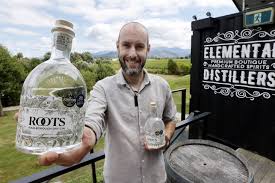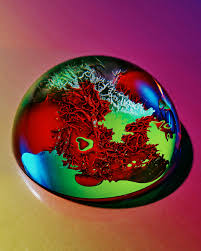The origins of your Burns Night haggis

Tonight – January 25 – is Burns Night. It marks the birthday of Rabbie Burns, the poet wrote much of his verse in Scots rather than English.
Burns was born on January 25, 1759 in Alloway, on the west coast of Ayrshire, about miles 40 south of Glasgow. His birthday is celebrated by devotees with a Burns Night supper, which can be highly ritualistic or very informal. The meal usually begins with the Selkirk grace written in Lallans (Lowland Scots):
Some hae meat an canna eat,
Some have food and cannot eat,
And some wad eat that want it;
and some want food who have none.
But we hae meat, and we can eat,
But we have food and we can eat
And sae the Lord be thankit.
and so the Lord be thanked
After a soup course, guests stand up as the cooked haggis is carried to the table to the accompaniment of a bagpipe.
Haggis consists of minced sheep offal – usually the heart, lungs, and liver – mixed with oatmeal, onion, suet, pepper and spices, which is then stuffed into a sheep’s stomach – now most often a synthetic casing – and boiled or roasted. There are many other such traditional grain and offal dishes in different parts of Europe. Haggis was popular in English cuisine up until the 1600s. Nowadays you can buy vegetarian haggis.
I was fortunate enough to spend four years living in Scotland, and I came to like haggis very much. It is traditionally served with “tatties and neeps” – mashed potatoes and mashed turnips – though, for Scots, “turnips” are what English people call swedes (i.e. Swedish turnips, or rutabaga) as opposed to white turnips.
Before the haggis is served on Burns Night, his poem Address to a Haggis is recited. It begins:
Fair fa’ your honest, sonsie face,
Great chieftain o’ the puddin-race!
Aboon them a’ ye tak your place,
Painch, tripe, or thairm:
Weel are ye wordy o’ a grace
As lang’s my airm.
Fair fa’ye ‘fair fall you’ is a Scots greeting – ‘may everything fall out well for you’. Sonsie means ‘lucky, prosperous, fortunate’ and is thought to come from Gaelic sonas ‘good fortune’.
Puddin is pronounced with the vowel of ‘mud’, not ‘good’. The word pudding probably derives from the French boudin, originally from Latin botellus, signifying ‘small sausage’.
Aboon means ‘above’. Painch is ‘paunch, belly’ and thairm is ‘intestine’. Thairm is one of the many Scots words originating in Old Norse: in modern Norwegian tarm means ‘gut’. The last two lines of the stanza can be rendered as ‘well are you worthy of a grace as long as my arm’.
There are seven more stanzas, during which the host dramatically plunges a knife into the haggis to cut it.
The origin of the word haggis itselfis not at all easy to ascertain. The only thing that experts agree upon is that the etymology is ‘uncertain’! It may have connections to French hacher ‘to chop up, hack’, to Old English haggen ‘to chop’, and/or to Old Norse höggva ‘to hew, cut, strike’.And a Burns Night supper wouldn’t be complete without a tot of whiskey ‘water of life’ and maybe some cranachan (from the Gaelic word meaning ‘churn’),a dessert of raspberries, oatmeal, whiskey and cream.


 United Kingdom
United Kingdom Argentina
Argentina  Australia
Australia  Austria
Austria  Brazil
Brazil  Canada
Canada  Germany
Germany  Ireland
Ireland  Italy
Italy  Malaysia
Malaysia  Mexico
Mexico  New Zealand
New Zealand  Poland
Poland  South Africa
South Africa  United States
United States 























